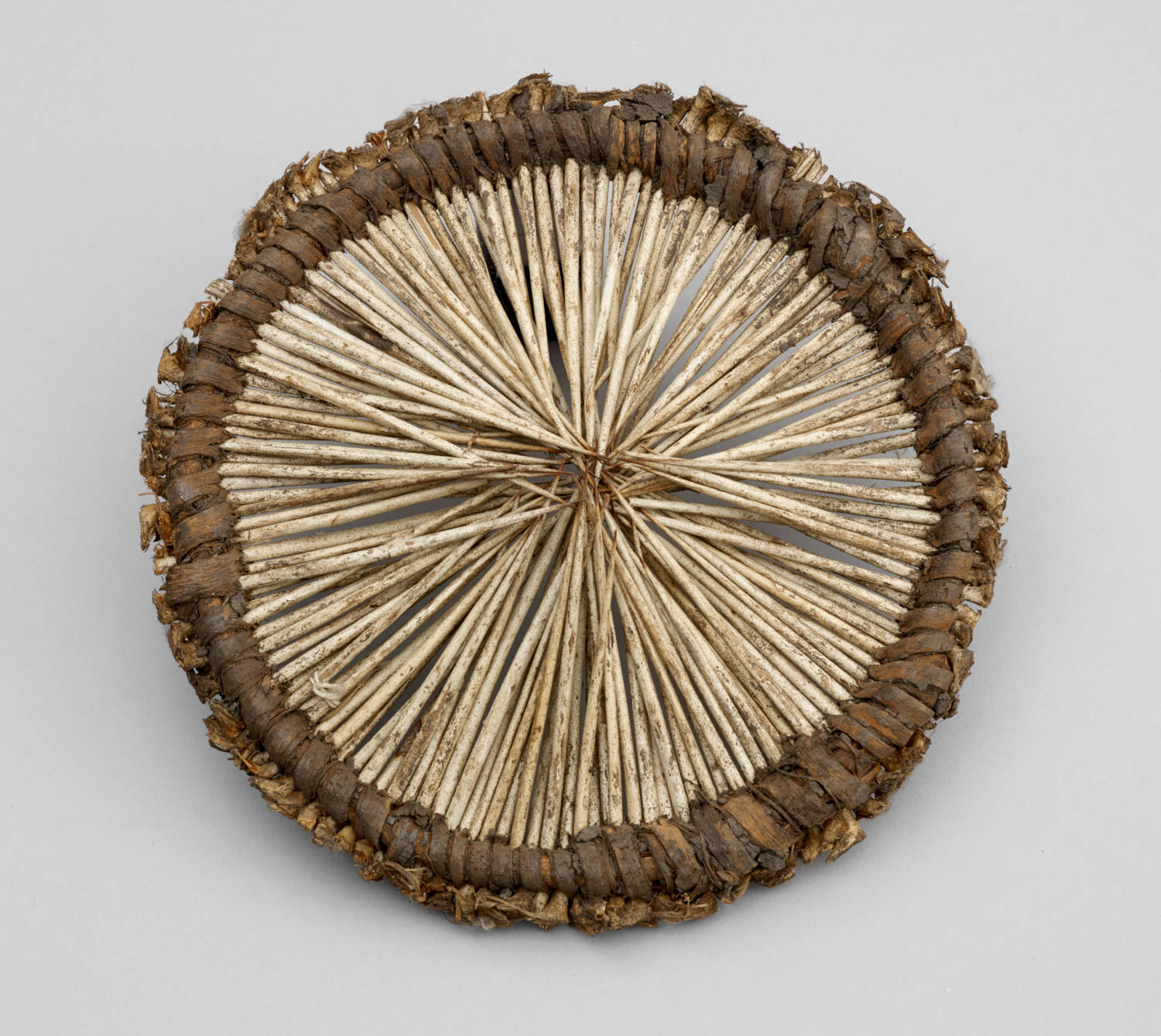
in Italiano / Italian translated by Federica Sebastiano
This object has been translated into 6 different languages by 6 different users
Questa è una trappola per animali proveniente dall’Uganda, in Africa.
Le acacie sono alberi dotati di spine per scoraggiare gli animali che potrebbero mangiarle; queste spine sono state poi utilizzate dall’uomo in trappole simili a questa per catturare gli animali.
Mangiare carne è una cosa normale in molte aree del mondo, mentre in alcune regioni è più comune essere vegetariani, per motivi religiosi o ideologici. Qual è la vostra opinione sul consumo della carne?
Do you have something you’d like to say, in your own language or English, about the object or translation? We’d like to hear what you think.
Translations are community-sourced and for anyone to participate in, however you use your language. For more information, see Community Guidelines.
25 Oct, 2023
Quali tipi di selvaggina catturavano con questa trappola?
23 Sep, 2023
Hunters in Italy are in sharp decline, and controls are increasing, but hunting is still a significant problem in Italy due to illegal poaching.
According to data collected by Birdlife International, Italy is in second place for illegal poaching in the Mediterranean basin, with almost six million living beings (mainly birds) killed illegally every year.
From the survey conducted in February 2022 by the EMG Different Institute and commissioned by WWF, it emerged that the majority of Italians are against hunting. However, Italians appear doubtful and disheartened about the State’s ability to prevent illegal hunting: 58% of Italians are convinced that the sanctions envisaged are insufficient and 71% consider that the police and the judiciary are not sufficiently aware of the impacts generated by these crimes.
Recently, WWF has put forward the request for a single text that protects wildlife through a strong limitation of hunting practices, a strengthening of controls and a tightening of sanctions.
The European Commission is also concerned about this serious issue and has launched a formal infringement procedure against Italy on the matter.
The Italian Government will soon have to respond to the European Commission and the environmental associations but, for now, the situation remains uncertain.
What is clear is that the attitude towards hunting has drastically changed in Italy and this may hopefully lead to great protection of animals and their habitats.
5 Apr, 2023
What is your opinion on eating meat?
I was born and raised in Greece. Something which means that the food I was consuming, while I was
there, was based on the Mediterranean diet. That diet is based on the eating habits of the inhabitants
of Crete and southern Italy in the 1960s, basically emphasises the consumption of pulses, olive oil,
cereals and seeds, fruits and vegetables, moderate consumption of fish and white meat and infrequent
consumption of red meat, as well as moderate consumption of red wine. To be perfectly honest,
Greeks do not always consume moderately red wine (especially if they produce it).
Back to the main question, yes. My diet includes meat (apart from pork), and personally, I do not
believe that moderate or infrequent consumption of fish or meat is necessarily unhealthy or
ideologically incorrect. Originally, I am from a Greek Island. In addition to that, I was raised by Greek
farmers. As a result, having the chance to connect with animals and the nature, learn to respect them
and understand the importance of adopting healthy eating habits is fundamental not only for my
physical health, but also for my mental health. According to the Roman poet Juvenal (10.356-64)
‘Mens sana in corpore sano’ (= a healthy mind in a healthy body). I, personally, agree with the famous
Latin quotation and I believe that the specific mentality could lead to wellbeing.
Furthermore, I believe that this applies to every living creature on this planet. For example, if you are
about to eat an animal that did not eat healthy during their lifetime then you are not going to eat
healthy as well. Everything is a Cycle, and every living creature plays such an important role in our
ecosystem. On the contrary, I do believe that frequent and even infrequent consumption of not only
processed meat, but also processed fruits and vegetables is unhealthy, flavourless, and disrespectful
towards animals and nature as well.